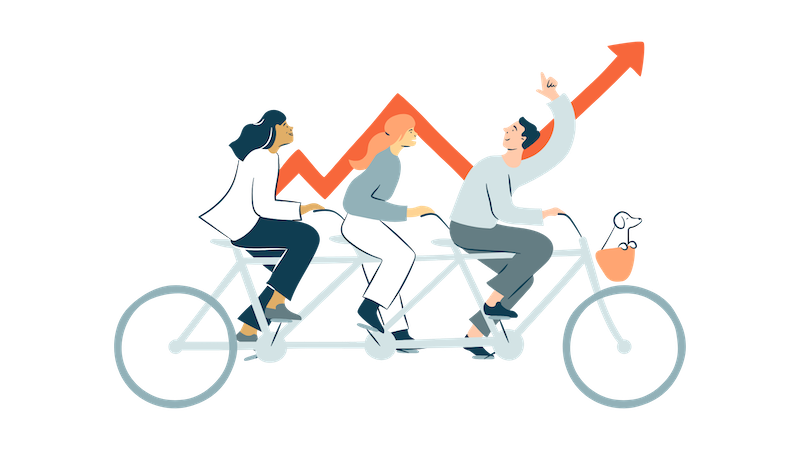
We all know how important it is to take breaks during the workday. It makes us more productive and increases our focus and what-not…
So why is it then, that even though we know it is better to take short breaks every now and then (preferably every 30 mins or so), we still prefer working for long periods of time and only take the break when our brain finally stops co-operating or our neck hurt so much it’s impossible to sit on the bench any more?
There are probably lots of personal reasons behind this, but let me try to tackle at least some of the most common ones.
You feel too busy to take breaks
This is probably the most common reason for not taking breaks frequently enough. You have a task at hand that you are supposed to get done before noon, and you realise you’re going to have to hurry to accomplish it in time. So taking a break would feel like slacking or a waste of time.
I also admit dismissing my breaks because of this. It is so easy to reason with yourself and skip the break. But let me assure you, even though you feel that way, the opposite is true. Even taking a short 5-minute break enhances your brain activity and gives a boost to your blood circulation, which makes you way more productive for the time you’re working after the break.
Besides that, your brain actually doesn’t stop working while you’re taking the break. Even if you don’t consciously think about your problem at hand, your unconscious mind is working on it full time.
You probably have experienced those moments, when you absolutely have to take a break (eg. to go to the toilet) and while taking the break, you finally figure out the solution for the problem you’ve been trying to solve for the past 2 hours.
You don’t want to lose focus and concentration
What could be more frustrating than being interrupted while working on a focus-demanding task? Especially when the task requires you to hold a lot of small pieces of information together in your head.
Interruptions coming from outside in this kind of situations are bad indeed. After being interrupted this way it might take you up to 30 minutes to get back on track.
You might fear the same holds true for taking voluntary breaks. But you shouldn’t. Actually, there is a distinctive difference between involuntary interruption and a voluntary break.
The biggest difference is the timing. As the research suggests, the brain can keep focused attention only in intervals from 20 to 45 minutes, after which the concentration starts to drastically diminish. So you want to take a break only after the attention span threshold, not during it as would be the case with outside interruptions.
Another distinction is continuity. When voluntarily taking a break, you have time to make a mental (or even written) note on where you’re at. This way it’s easy for you to come back to the thought and continue from there later. When you get interrupted, you probably can’t do that.
But now, the scientific studies have shown that taking breaks from a task can dramatically improve one’s ability to focus on the said task in the long run. In one study led by professor Dr. Alejandro Lleras from the University of Illinois, it was found that short diversions from the task at hand vastly improves focus. Here’s what Dr. Lleras said about the results:
“From a practical standpoint, our research suggests that, when faced with long tasks (such as studying before a final exam or doing your taxes), it is best to impose brief breaks on yourself. Brief mental breaks will actually help you stay focused on your task!”
You’re in a good flow and don’t want to break it (pun intended)
Everyone knows how good it feels to be “in the flow”. Time flies and you are so immersed in your work that you can’t even hear or see what else is happening around you.
It might be really hard to snap out of the flow to take a break, as you don’t even notice the time passing. Probably you don’t even want to since being in the flow feels so good.
But even though flow feels good, it doesn’t counteract the fact that your productivity diminishes over time. Despite being in the flow, your brain still needs a break every now and then to remain focused on the task at hand.
You feel guilty for not sitting constantly at your desk
In many cultures, taking a break is seen as being lazy and avoiding work. Even though you know it would be better to take a break, you still might have this nagging feeling of guilt when you do.
This one might be tricky to fight back by simply reasoning the benefits of taking breaks since it’s about how you think people see you as a person. If this is the case, probably it might be best to broach the subject with colleagues and see what they think.
If you can collectively agree taking breaks is for the best, then at least you would know your colleagues are not thinking you are lazy or avoiding work when taking breaks.
What can you do about it?
Now that you probably have gained a bit of motivation to start taking more breaks during your day, you might want some ideas on how to do it.
Here’s a couple of office hacks for you to increase the number of breaks you are taking at work. Try them out and see if one of them works for you. But don’t take this too seriously. In the end, the outcome should be that you enjoy your work more and have some fun in the process.
Office hack #1
Make it a habit to drink a lot of water during the day, and you’ll have a natural forcing factor to go and take a break every now and then.
How to achieve it? Here’s one way…
- Drink at least 2 or 3 full glasses of water (on top of the coffee you might drink) in the morning before leaving for work.
- If you did the first step correctly, you should feel the urge to take a break within the first hour at work.
- Whenever you visit the toilet during the day, make it a habit to drink one glass of water on your way back to your workstation.
Office hack #2
Make distractions your best friend.
You know the moment when you feel tempted to check your email, Facebook or look at your phone to see if you’ve got a message or two? That’s the moment when your brain starts to loosen up and it becomes hard to concentrate. As I mentioned earlier, it is perfectly normal for this to happen after being focused for a 20 to 45 minute period.
When that happens, let that be an indicator for you to take a break from the work you’re doing and see what happens. I bet you’ll be way more focused on your task after a short break.
So, whenever you get distracted, it’s probably the best time to take a break.
Pomodoro
As a bonus reminder, if none of the previous hacks works for you, there’s always the good old and proven Pomodoro technique.
There are lots of good resources available on the internet about the Pomodoro Technique, so I’m not going to explain it in detail here, but the idea, in a nutshell, is that you work in 25-minute uninterrupted cycles and keep 5-minute breaks in between. After 4 cycles you’ll keep a longer break (20 to 30 minutes).
So that’s it for now. I hope you can incorporate something from this advice into your daily routines.
Here at Gofore taking breaks, having a good time and playing with your workmates during the day is a big part of the company culture. Everyone is encouraged to take breaks every now and then.


